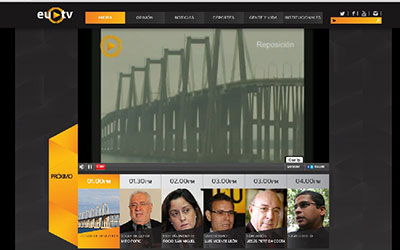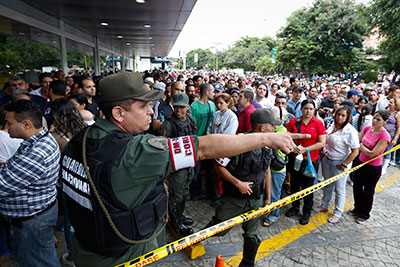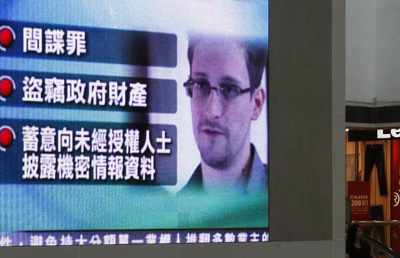Attacks on the Press in 2013: Venezuela
A climate of uncertainty and tension surrounded the death of President Hugo Chávez after his tightly guarded struggle with cancer and the election of his handpicked successor, Nicolás Maduro. Coverage of both events resulted in widespread attacks on and harassment of journalists. The government’s campaign against critical broadcaster Globovisión continued with the eighth sanction against…

Web-based TV opens space for critical voices in Venezuela
With its low budget décor and grainy images, EUTV has the look and feel of small-town community television. But the Web-based TV station that went live on November 18 has much larger ambitions: It intends to be the primary source for Venezuelans who covet independent television news.
Venezuela forces ISPs to police Internet
The concept of network neutrality holds that all Internet traffic should be treated equal and that Internet Service Providers, or ISPs, should serve as free-flowing gateways for information rather than as filters. But in politically polarized Venezuela, neutrality is an increasingly rare commodity and now ISPs are feeling the heat.

Venezuela tries to suppress reports of economic upheaval
Amid skyrocketing inflation and shortages of basic goods, Venezuelan authorities claim that an “economic war” is being waged against the socialist government of President Nicolás Maduro. The government is striking back by forcing stores to discount prices, by arresting business owners accused of hoarding–and by targeting journalists trying to cover the grim economic news.
CPJ testifies on challenges to democracy in the Americas
Carlos Lauría’s testimony starts at 1:10 in the video. Carlos Lauría, CPJ’s Americas senior program coordinator, provided testimony before the Subcommittee on the Western Hemisphere of US House of Representatives on Tuesday. Lauría emphasized that violence and government harassment are the main emerging trends that illustrate the major challenges facing the press in the Western…

Snowden travels trace a path of government hypocrisy
Edward Snowden’s global travels have highlighted the chasm between the political posturing and actual practices of governments when it comes to free expression. As is well known now, the former government contractor’s leaks exposed the widespread phone and digital surveillance being conducted by the U.S. National Security Agency, practices at odds with the Obama administration’s…
Venezuela releases jailed US filmmaker, deports him
New York, June 5, 2013–A U.S. filmmaker jailed in Venezuela since April on trumped-up charges of espionage has been freed and deported from the country, news accounts reported today. The Committee to Protect Journalists welcomes the release of Timothy Hallet Tracy, and calls on Venezuelan authorities to allow all journalists to work without interference.
